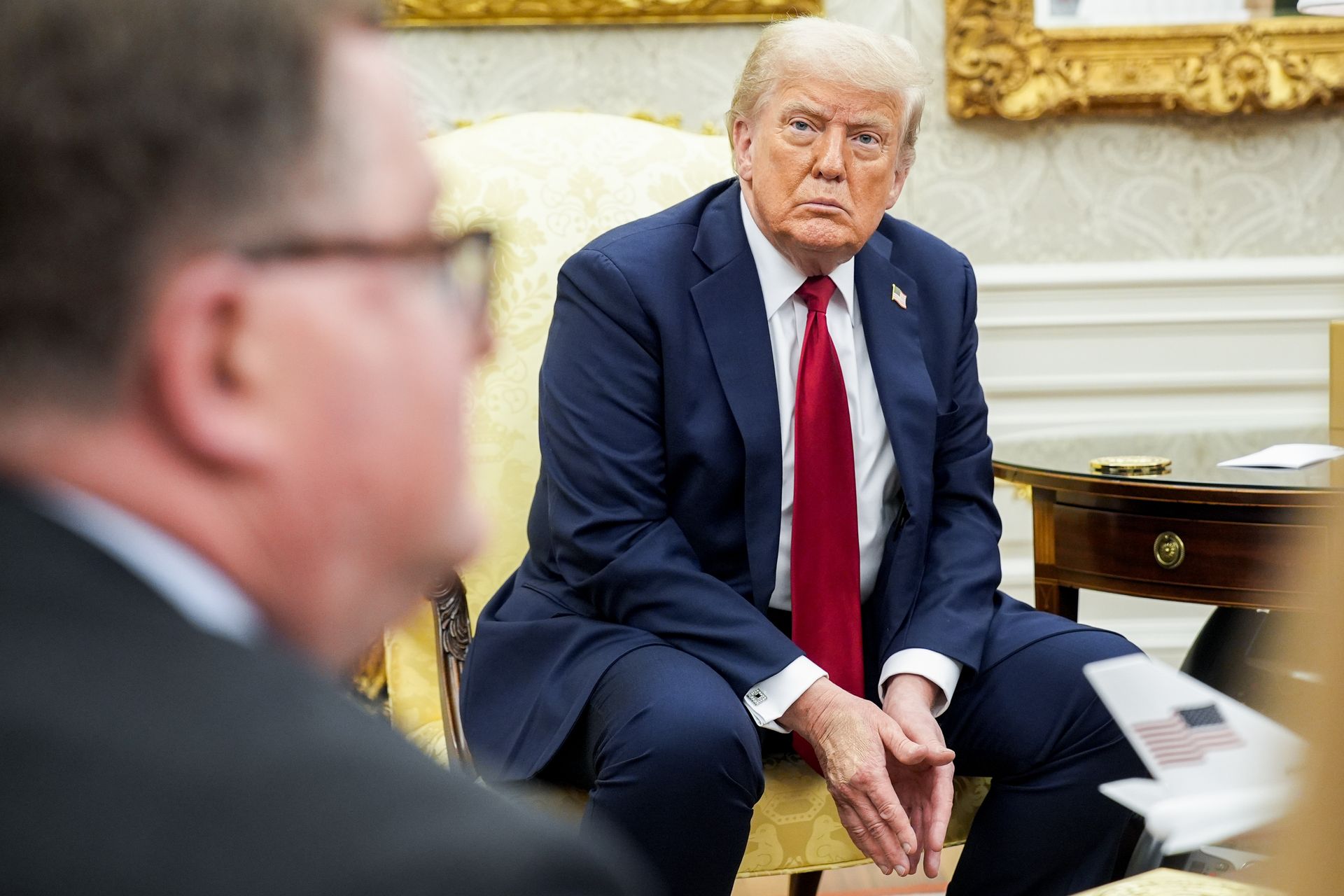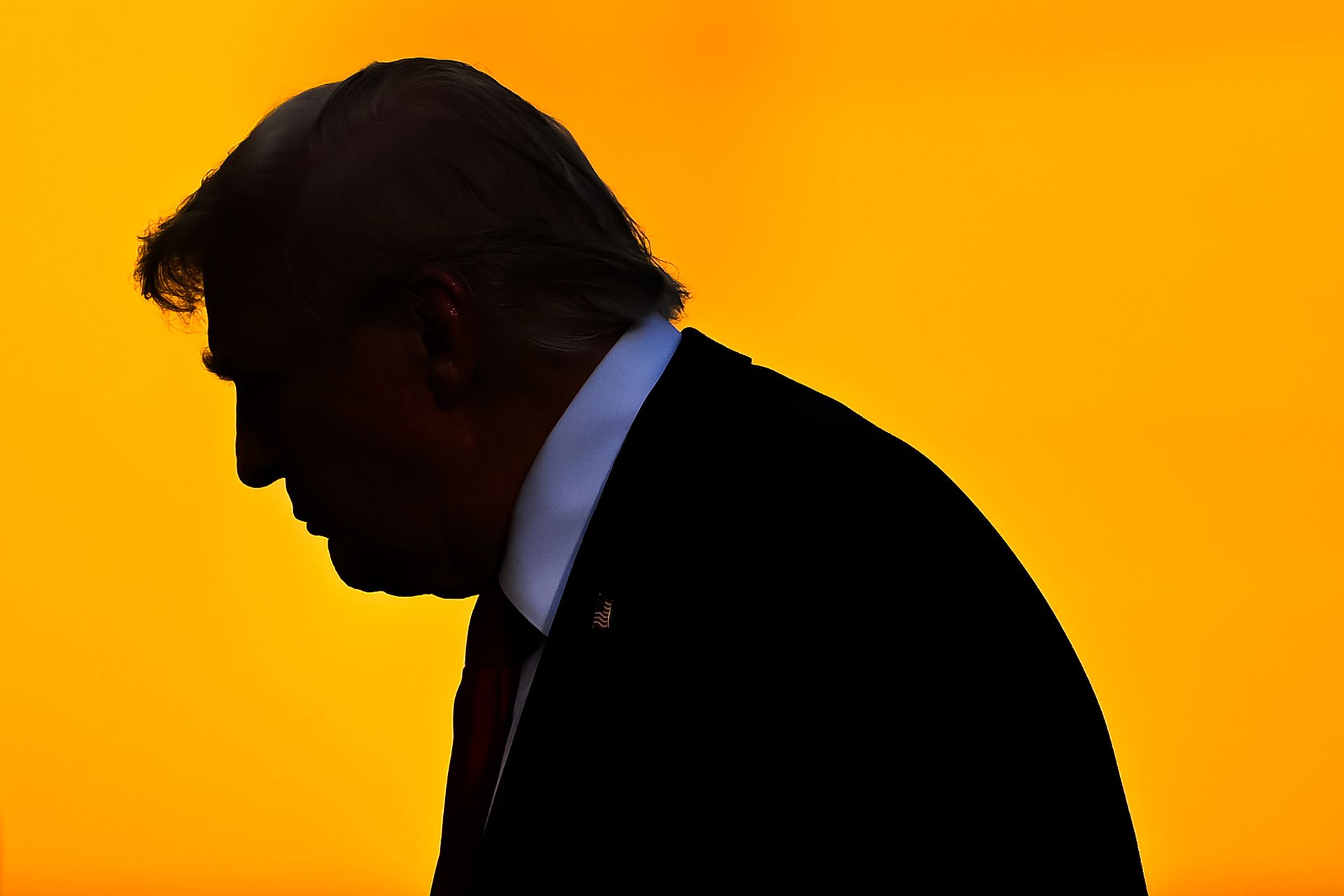Ukraine war latest: Zelensky shouldn't target Moscow, Trump says

Key developments on July 15:
- Zelensky shouldn't target Moscow, Trump says
- Ukrainian cyberattack "paralyzes" major Russian drone supplier, source claims
- Ukraine passes bill to withdraw from anti-personnel mine ban treaty
- Germany to decide on more Patriots for Ukraine "within days or weeks"
U.S. President Donald Trump said during a briefing on July 15 that his Ukrainian counterpart, Volodymyr Zelensky, should not strike the Russian capital.
Trump's remarks come after the Financial Times (FT) reported, citing undisclosed sources, that the U.S. president asked Zelensky during a phone call in early June whether Kyiv could strike Moscow if provided with long-range U.S. weapons.
The Washington Post also reported that, according to its source, Trump asked the Ukrainian leader why he had not struck the Russian capital. Zelensky allegedly replied that such an attack would be possible if the U.S. supplied the necessary weapons.
When asked if Zelensky should target Moscow or deeper into Russia, Trump responded by saying: "No, he shouldn't target Moscow."
Commenting on the FT's report earlier in the day, White House Press Secretary Karoline Leavitt, in a statement to Newsweek, accused the newspaper of "taking words wildly out of context."
"President Trump was merely asking a question, not encouraging further killing. He's working tirelessly to stop the killing and end this war," she said.
Ukrainian cyberattack 'paralyzes' major Russian drone supplier, source claims
Ukraine's military intelligence (HUR) has "paralyzed" operations at Gaskar Group, one of the largest drone suppliers to the Russian military, a source within the agency told the Kyiv Independent on July 15.
The cyberattack was reportedly carried out in coordination with Ukrainian cyber volunteers and targeted Gaskar's internal network and server infrastructure.
According to the source, HUR gained access to over 47 terabytes of technical data related to the production of Russian drones. All data stored on the company’s servers was allegedly destroyed.
"The stolen data includes confidential questionnaires of the company's employees, and most importantly, full technical documentation on the production of drones, which was handed over to the relevant specialists of the Ukrainian Armed Forces," the source claimed.
They added that the cyberattack disabled Gaskar Group’s internet services, production software, and accounting systems, effectively crippling operations at its development center.
The Kyiv Independent could not independently verify these claims. As of publication, Gaskar Group’s website remained operational.
Ukraine passes bill to withdraw from anti-personnel mine ban treaty
Ukraine's parliament has passed a bill suspending Ukraine’s participation in the Ottawa Convention banning anti-personnel mines, lawmaker Yaroslav Zhelezniak reported on July 15.
The decision was adopted by the Verkhovna Rada under the bill No. 0329, halting Ukraine’s obligations under the convention. The vote passed with the support of 305 lawmakers, with 40 abstaining, and none voting against.
Later in the day, President Volodymyr Zelensky announced that he had signed the law suspending Ukraine’s participation in the Ottawa Convention banning anti-personnel mines, as well as a law allowing multiple citizenship and the ratification of an agreement to establish special tribunal on Russian aggression.
The 1997 treaty, joined by over 160 countries, bans the use, production, stockpiling, and transfer of anti-personnel landmines in efforts to protect civilians from the scattered explosives that could still injure them long after the conflict is over.
"Russia has never been a party to this convention and uses anti-personnel mines extremely cynically," Zelensky said, justifying the decision.
"Thanks to steps regarding the use of certain types of weapons, particularly anti-personnel mines, we will be able to achieve at least parity in forces and means necessary to defend against Russian aggression."
Citing Article 20 of the Ottawa Treaty, Human Rights Watch previously stressed that it takes half a year after the state submits a notice to the United Nations for the withdrawals to come into effect, and that it is not allowed to exit the treaty if the state is still in an armed conflict at the end of that period.
Germany to decide on more Patriots for Ukraine 'within days or weeks'
Germany and the United States will decide within days or weeks on sending two U.S.-made Patriot air defense systems to Kyiv, German Defense Minister Boris Pistorius announced on July 14 after discussions with U.S. Defense Secretary Pete Hegseth.
Germany has offered to acquire U.S. Patriot systems specifically to transfer them to Ukraine, which has recently endured some of the war's most intense Russian attacks.
Speaking from Washington, Pistorius confirmed that working-level talks would continue to finalize agreement details, including the precise number of launchers and missiles, according to Reuters. With a deal secured, he added, the first Patriot unit could arrive in Ukraine within months. Pistorius declined to comment on whether their discussions extended to offensive weapons for Kyiv.
Germany has already donated three of its own Patriot systems to Kyiv, retaining nine systems. This number significantly contrasts with the 36 Patriot batteries Germany operated during the height of the Cold War.
Note from the author:
Ukraine War Latest is put together by the Kyiv Independent news desk team, who keep you informed 24 hours a day, seven days a week. If you value our work and want to ensure we have the resources to continue, join the Kyiv Independent community.













